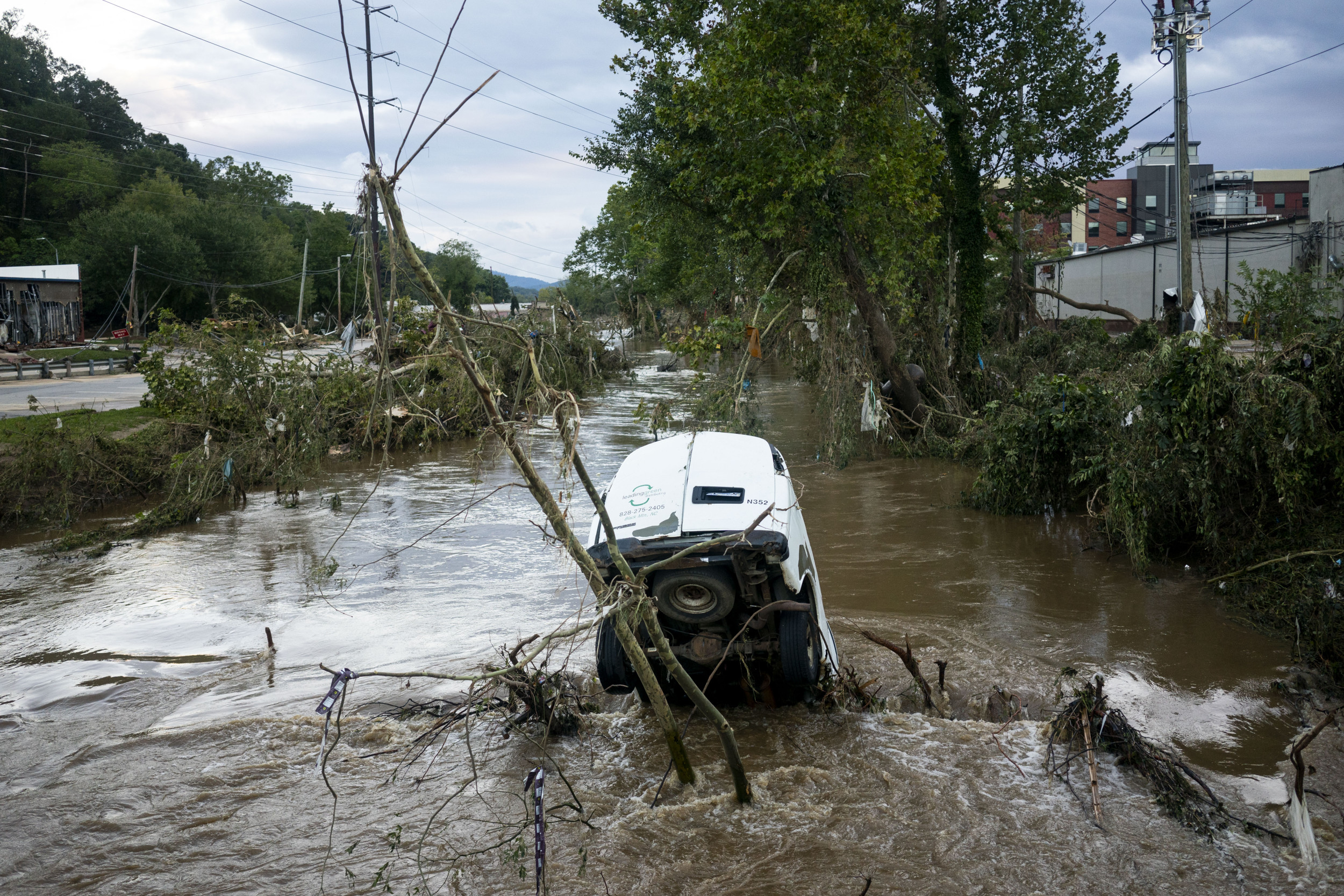A cold front is on its way to western North Carolina, which may result in cooler temperatures and the need for warm clothing as relief efforts continue in the region. Light rain is also anticipated over the weekend.
Last Thursday, Hurricane Helene hit landfall as a powerful Category 4 hurricane with wind speeds reaching 140 miles per hour, particularly affecting the Big Bend area of Florida.
The storm caused significant loss of life across the southern and southeastern U.S., with a reported 200 fatalities due to storm surge, destructive winds, and heavy rainfall. Asheville, North Carolina, experienced severe flooding, causing damage to numerous homes and properties.

Sean Rayford/Getty
Western North Carolina has seen considerable destruction, complicating relief efforts. Many families are still trying to evacuate, but hundreds of roads remain closed from mudslides and flooding, including two major interstates that could take months to repair.
According to meteorologist Pereira, while there’s a chance of light showers on Friday—about 30%—the threat of significant rainfall is low. “It’s not expected to be disruptive, but it’s something to keep an eye on,” Pereira noted.
Temperatures are set to drop next week, with higher elevations in the 30s, as a cold front moves through on Monday. This will bring low temperatures into the 40s and 50s for much of the area, prompting a need for warm clothing for those involved in recovery efforts.
Pereira expressed concerns about the dropping temperatures, saying they could pose risks for anyone exposed in the aftermath of the storm, particularly expected to be coldest on Tuesday.
More than a week post-storm, over 304,000 people in North Carolina, 329,000 in South Carolina, and 252,000 in Georgia are still without power.
The National Hurricane Center is keeping an eye on two named storms, Hurricane Kirk and Tropical Storm Leslie, but both are projected to stay out at sea, posing no direct threat to the U.S.
